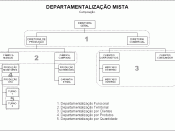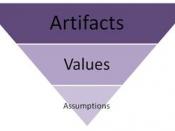Organizational Culture Page 1
Internet Article: Organizational Culture
MGT 331
24 November 2003
Organizational Cultural Page 2
Abstract
Organizational culture can be a powerful force that clarifies what's important and coordinates members' efforts without the costs and inefficiencies of close supervision. Culture also identifies an organization's distinctive competence to external constituencies. The articles "Leading by Leveraging" and "Architecting People" explored some of the problems associated with understanding the reality of an organization's culture.
Organizational Culture Page 3
In reality, what management pays attention to and rewards is often the strongest indicator of the organization's culture. Think for a moment about the organization in which you work. Does your management encourage or discourage innovation and risk taking? Does it reward employees for coming up with new ideas and challenging old ways of doing things? Company culture can be improved when "...leaders also promote innovation by creating a shared belief that team members are safe to take interpersonal risks."
(Chatman, Cha p.20)
Culture drives the organization and its actions. It guides how employees think, act and feel. A culture may be effective at one time, under given circumstances and ineffective at another time. Understanding and assessing your organization's culture can mean the difference between success and failure on today's fast changing business environment. Your organization's culture is not a list developed by an executive team hanging on the lobby wall. What you strive to be as an organization and what your values you hope to endorse, may be different from the value, beliefs, and norms expressed in your actual practices and behavior. The culture of an organization operates at both a conscious and unconscious level. Avoidance of conflict is a value that is an excellent example of an unconscious norm that may have a major influence on the organization. Secondary values are...


